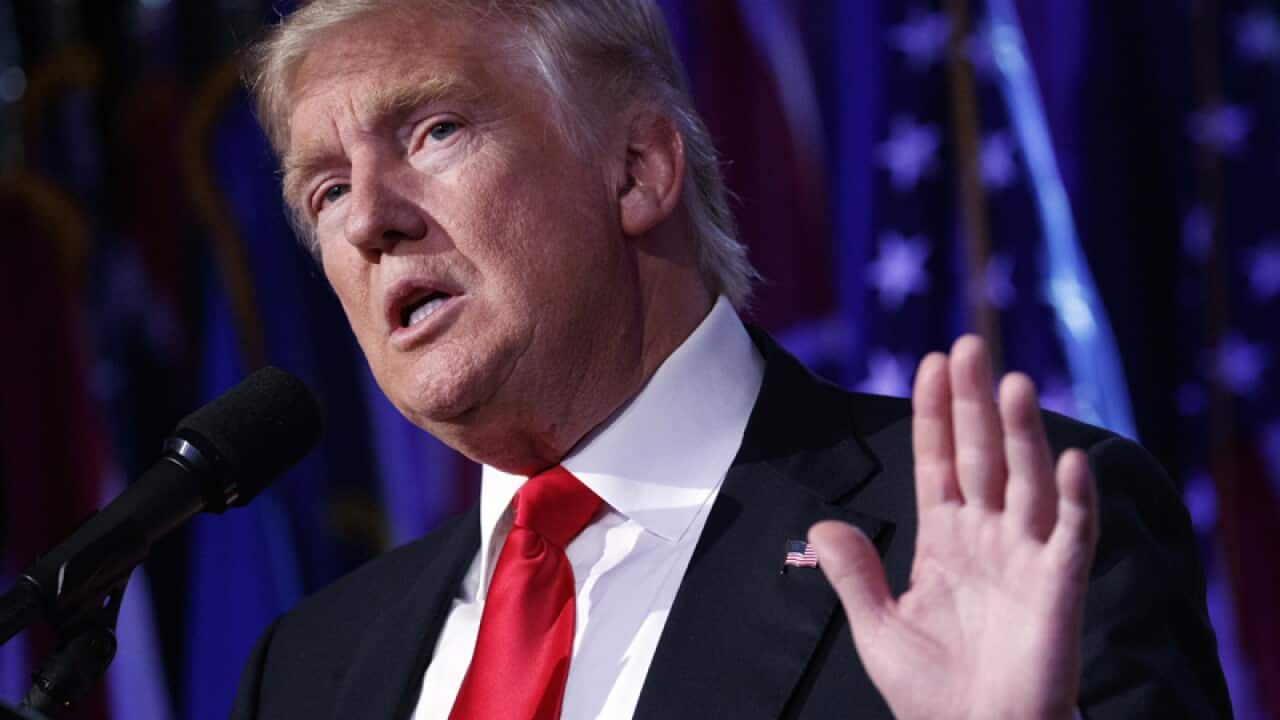The Golden State is home to the country's largest number of illegal immigrants -- an estimated 2.4 million -- and officials say members of the community are terrified since the mogul pulled off one of the most improbable presidential wins in modern history on November 8.
"We have been overwhelmed with inquiries," said Luz Gallegos, of the TODEC Legal Center, an immigrant-rights group in Southern California.
"Our hotline started blowing up with phone calls the night of the election... and it hasn't stopped since," she added. "Everybody is devastated, everybody is coming to us to hear a message of hope... and we are trying to be strong but we have to prepare for the worst."
She said anxiety is running high, with children of undocumented migrants refusing to go to school out of fear their parents could be arrested while they are in the classroom.
Reports of bullying and racist remarks are also on the rise in schools, Gallegos and other rights advocates said.
"We have heard of schools where teachers are telling our kids that their families are going to be deported and that they need to start speaking English," she said.
RECOMMENDED STORIES

Trump vows to immediately deport up to three million immigrants
Complete unknown
Trump vowed during the presidential campaign to build a wall along the US-Mexico border and to deport millions of undocumented migrants from the country.
Although the Republican tycoon has yet to spell out his immigration plan, rights groups fear he will push forward on some of his promises, including ending the Obama administration's Deferred Action for Childhood Arrivals immigration policy.
DACA offers temporary relief from deportation to nearly 750,000 people who arrived in the United States as children and stayed illegally. About one in three of these so-called Dreamers live in California, according to rights groups.
"People under DACA are scared because now their name is in the system and they fear they might be deported," said Enrique Morones, founder and director of the San Diego-based human rights group Border Angels.
"Nobody really knows what is going to happen. The day after the election, we received more phone calls than ever before in our 30-year history."
He said advocacy groups have mobilized to set up daily information sessions and workshops to help migrants understand their rights and prepare for every eventuality after Trump takes office on January 20.
"We are telling people to get their papers in order, to make sure someone has power of attorney in case the family is divided, so that the kids don't get turned over to social services," Morones said.
Advocates are also warning immigrants about scam artists -- including unscrupulous notary publics and attorneys -- who have popped up in the wake of the election, seeking to cash in on the fear gripping the community.
State officials, meanwhile, have scrambled to offer reassurance and have put Trump on notice that he will face a wall of resistance should he implement his controversial immigration proposals.
"If the first day, as president, we see something that is hostile to our people, hostile to our city, bad for our economy, bad for our security, we will speak up, speak out, act up and act out," Los Angeles Mayor Eric Garcetti warned.
He said the city, where more than half a million undocumented workers live, will also continue to enforce a policy that prevents police from asking people about their immigration status.
Los Angeles police chief Charlie Beck has also sought to allay fears saying his officers will not help federal officials apprehend immigrants in the country illegally.
"I don't intend on doing anything different," Beck told reporters this week. "We are not going to engage in law enforcement activities solely based on somebody's immigration status.
"We are not going to work in conjunction with Homeland Security on deportation efforts. That is not our job, nor will I make it our job."


